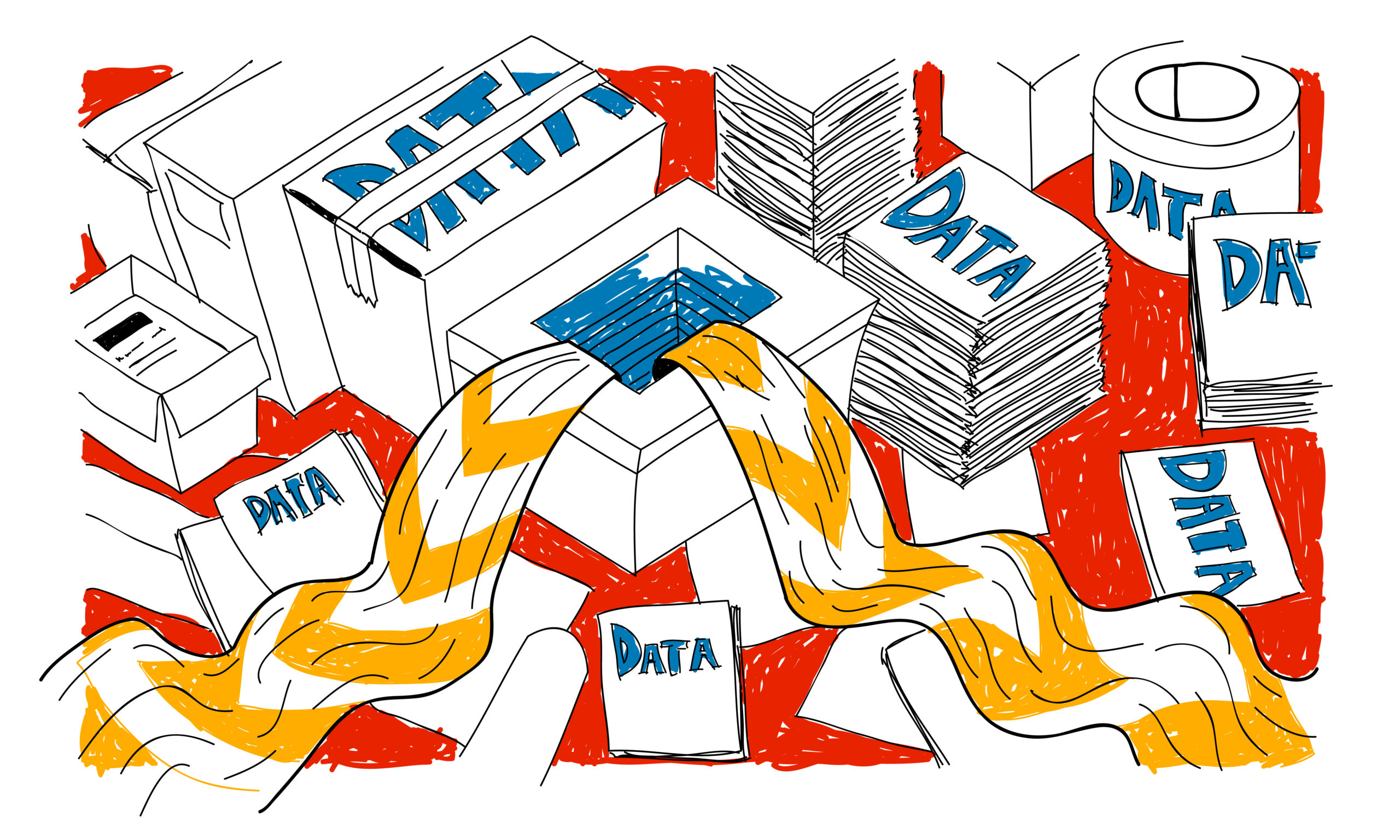
In a previous article, we described how to easily install open-source alternatives to Office, Teams, Outlook, and OneDrive in a private cloud running Origo OS. Our latest guide shows how to quickly and easily launch a private cloud at Hetzner with Origo OS to run your company’s digital infrastructure.
The server we order from Hetzner has 12 cores, 128 GB of RAM, and plenty of storage. It costs €70 per month, or about 520 DKK.
Just to be clear: with Origo OS on a server at Hetzner, you can easily run the entire digital infrastructure for an organization of up to around 100 people for 520 DKK per month—including all the common productivity applications a typical company requires.
Note that Origo is open source and can be freely used for non-commercial purposes. For commercial use, you must obtain a commercial license.
Late summer this year, one of the most high-profile public cloud initiatives in the Nordics launched:
Before that, 2–3 years had been spent with development work and capital injections:
It looked really exciting — finally, an initiative with proper funding and big ambitions. Yesterday I finally had time to try it out. I managed to “sign up” and “sign in” with my credit card. So far, so good. Small steps — but at least, on paper, we finally have a public cloud in the Nordics with self-service!

There is plenty of talk about data sovereignty and taking back control of our basic infrastructure. There are however very few practical examples of how to actually do this. People seem to think it’s very, very hard. To the point even, that some very influential people (https://www.berlingske.dk/politik/dansk-erhvervsliv-i-stort-strategiskifte-vi-maa-sluge-den-kamel) think that running our most basic and critical digital infrastructure is simply too complicated for us Europeans to handle by ourselves, and must be left in the hands of a few very large US corporations.
At Origo we don’t think so. In fact we think that digital infrastructure and the basic services that make us able to to communicate and collaborate with each other, is something that we are perfectly capable of running ourselves. To put a little weight behind that statement, let us walk you through a real-world example.

We are happy to announce that we are making a source code release of the web application powering Origo Cloud under the name Origo Public Cloud Toolkit. The code is licensed under the Common Public Attribution License, Version 1.0 (CPAL v.1): https://opensource.org/licenses/cpal_1.0, which stipulates that attribution notices, logos and URL links in the user interface must be preserved at all times.
The toolkit is designed to run in a VM in any Origo OS installation. It will run on your Ubuntu laptop or in your data center, as long as you have installed Origo OS.
During a long and heatwave-stricken summer here in Europe this year, we actually found time to implement a few long overdue features in Origo OS and fix a few long-standing bugs. Below are some of the highlights.
If you need help upgrading your Origo OS installation to take advantage of the new features, reach out.

Yesterday morning, our very likeable Minister for Digital Affairs, Caroline Stage Olsen, was invited to the radio show “Guest of the Week” on one of our national radio channels. Bo Fristed from the Municipality of Aarhus joined to talk about cloud services. The main topic was Caroline’s recent announcement that her ministry would “kick out” Microsoft and start using open source instead. Allegedly because we, as a society, are fed up with Microsoft’s total dominance and our total dependence on their services. Also, our local big-tech-disgust is in general somewhat amplified by Trump, his possible invasion of Greenland, the trade wars and perhaps even Netanyahu. Everybody agrees that something needs to be done.
At this point it may be worth pointing out, that some of us have in fact seen the movie before. This is a remake. And just maybe we should try to extract som learning from our past experiences.

Edora Cloud is a public cloud offering by the Danish IT vendor Edora A/S. It is currently the only public cloud offering in Denmark as far as we know, and was built in only 3 months using Origo OS. Commissioned in September 2024 and launched December 5th.
Europe and the Nordics are at a crossroads when it comes to cloud and Big Tech. All companies use cloud services. You can continue supporting Big Tech by using Microsoft Azure or AWS, you can use a local alternative, or you can build your own private or public cloud using open source orchestration platforms like OpenStack, ProxMox or Origo OS.
Origo OS leverages standard Linux technologies like KVM, libvirt, qcow2 images and zfs to deliver an out-of-the-box private cloud experience. It is licensed as open source and available to use for free on up to 24 CPU cores. Origo OS will give you a head start if you are building a public cloud, because it can be linked to origo.io and provide services, like Kubernetes, managed databases, billing, DNS services, user synchronization and other services you otherwise would have to build yourself, out of the box.
Let us walk you through how Edora Cloud was built using Origo OS.

Recent actions and signals from the current US administration certainly have profound ramifications. Particularly with respect to our ability to function as sovereign, European nations, in control of our own media, information and data. It is dawning on Europe, that it is in fact the control of our own destiny, our freedom, that is at stake.
The core problem is of course that today, Big Tech handles almost all of our communications, our media and our data. The lifeblood of any modern society.
We should however keep in mind, that there are other problems with Big Tech than the fact that most of it is run by American corporations. Yes, Big Tech has had a profound impact on our societies, but if we for a moment disregard economic gains in efficiency, as it turns out, most of this impact is bad. In fact, Big Tech may be one of the reasons we ended up in the current predicament.

Looking for a Danish solution to your multi-site WordPress needs? We just released a one-click WordPress stack available in Edora Cloud, Origo Cloud, on-prem Origo OS and other public and private clouds running Origo OS.
You can host as many sites as you like. Each site has its own separate domain name, database, plugins and themes.

A little more than one month ago we launched Edora Cloud. A Danish, sovereign, public cloud. Our approach is unconventional compared to other cloud providers in that we publish our infrastructure orchestration software as open source, and offer the posibility of running this on-prem. Compared to the very few and scattered, previous Nordic attempts at building public cloud offerings, we have purposely chosen not to rely on traditional enterprise tech, but are instead relying on our own orchestration stack, built around open source building blocks like Linux and KVM. We offer both a full-featured IaaS offering for running virtual servers, as well as various services built on top op this, including a Kubernetes service.